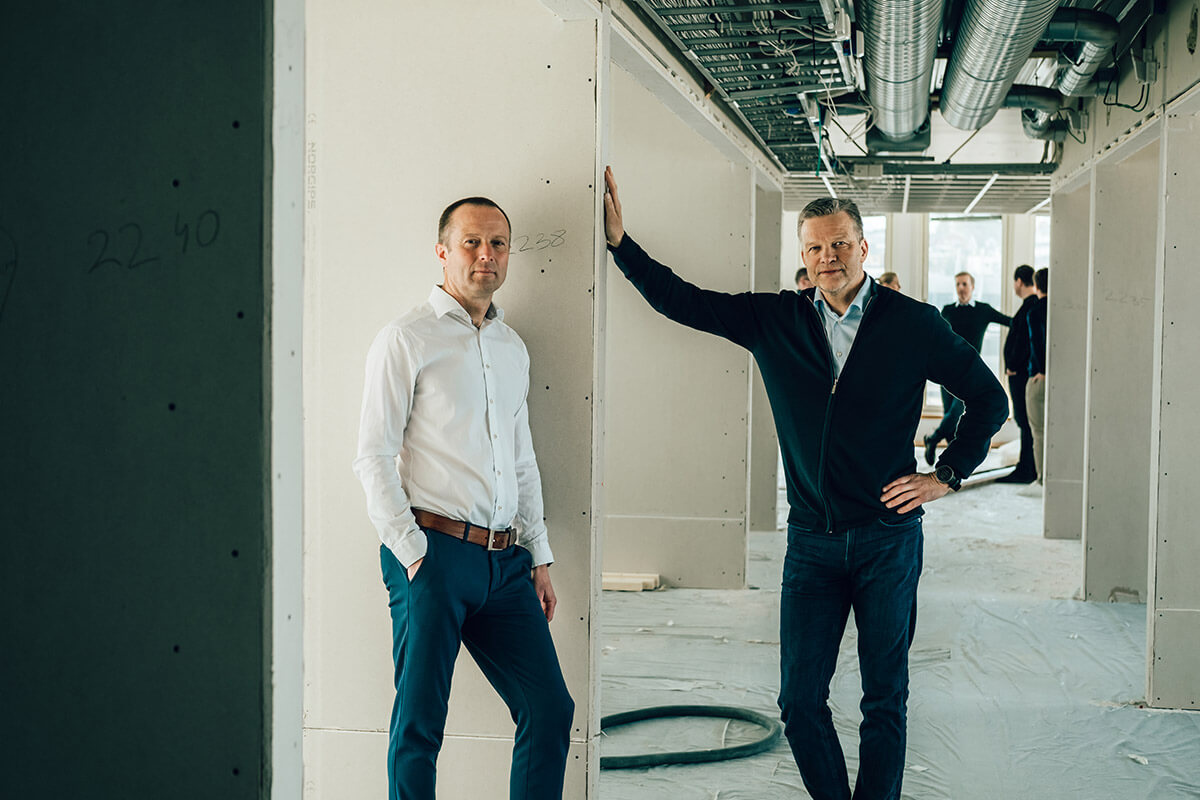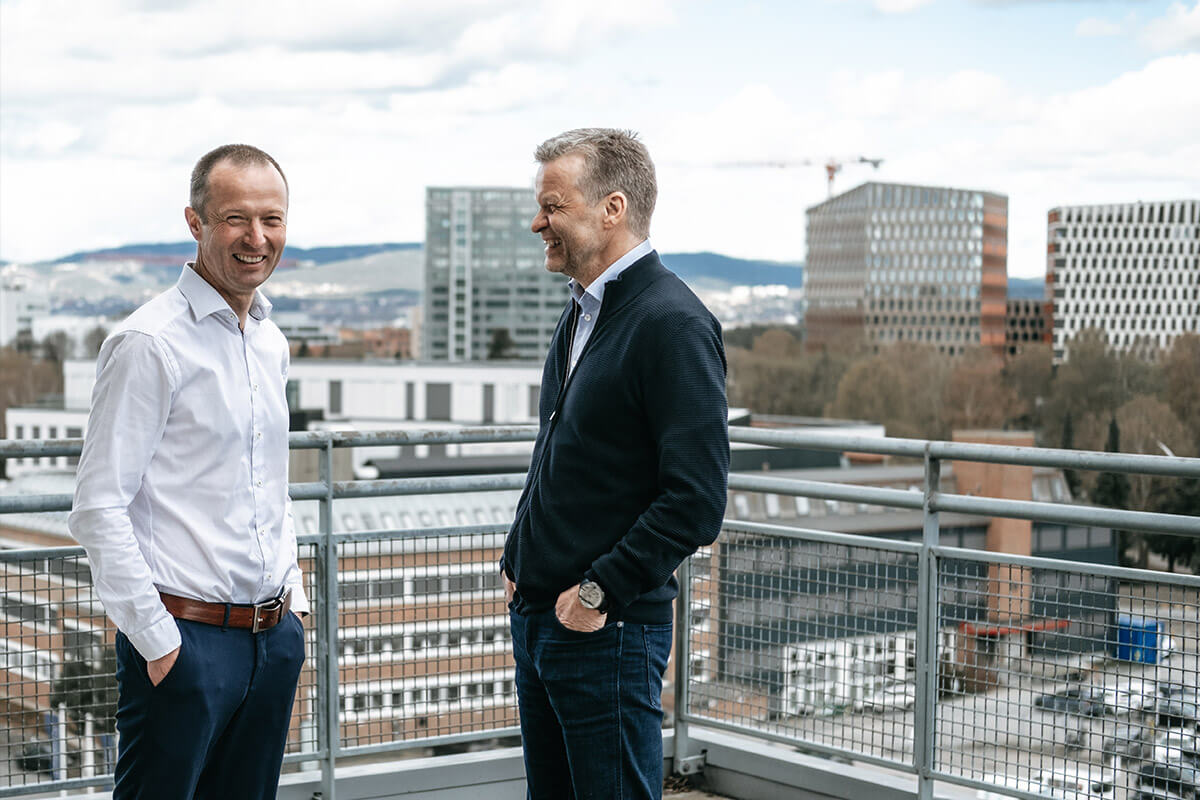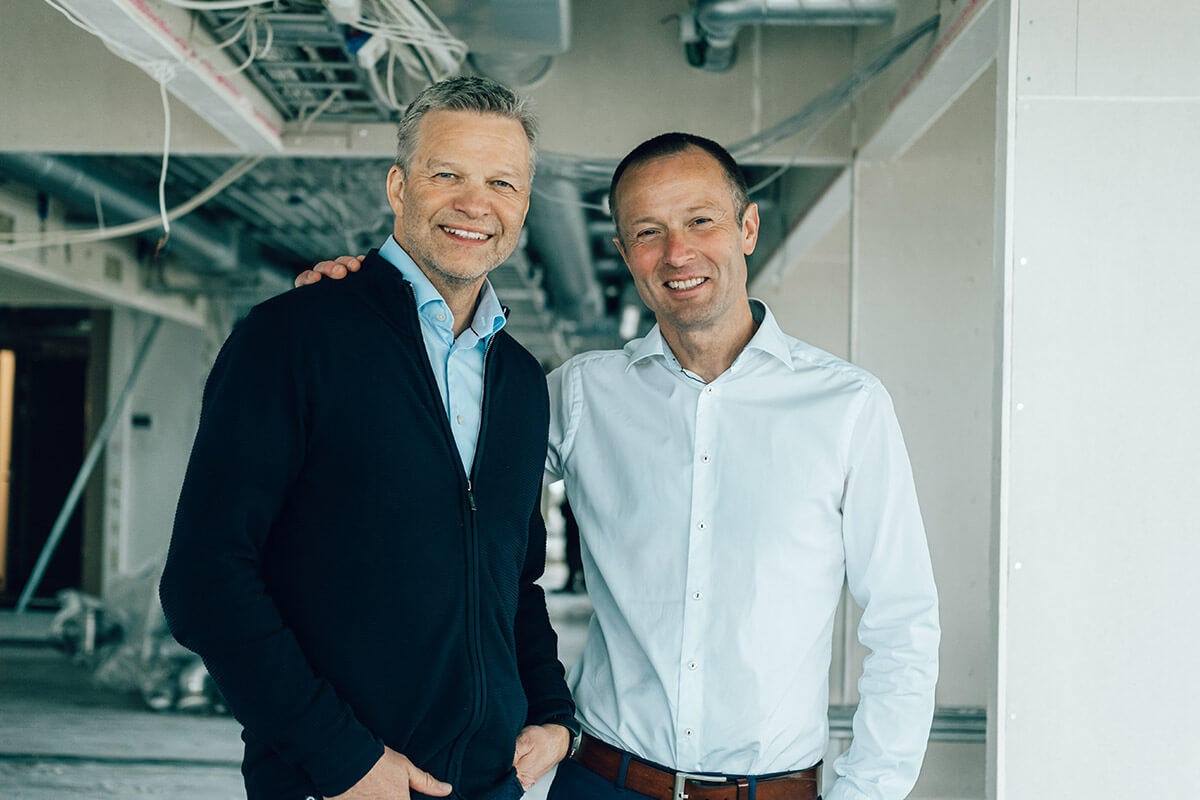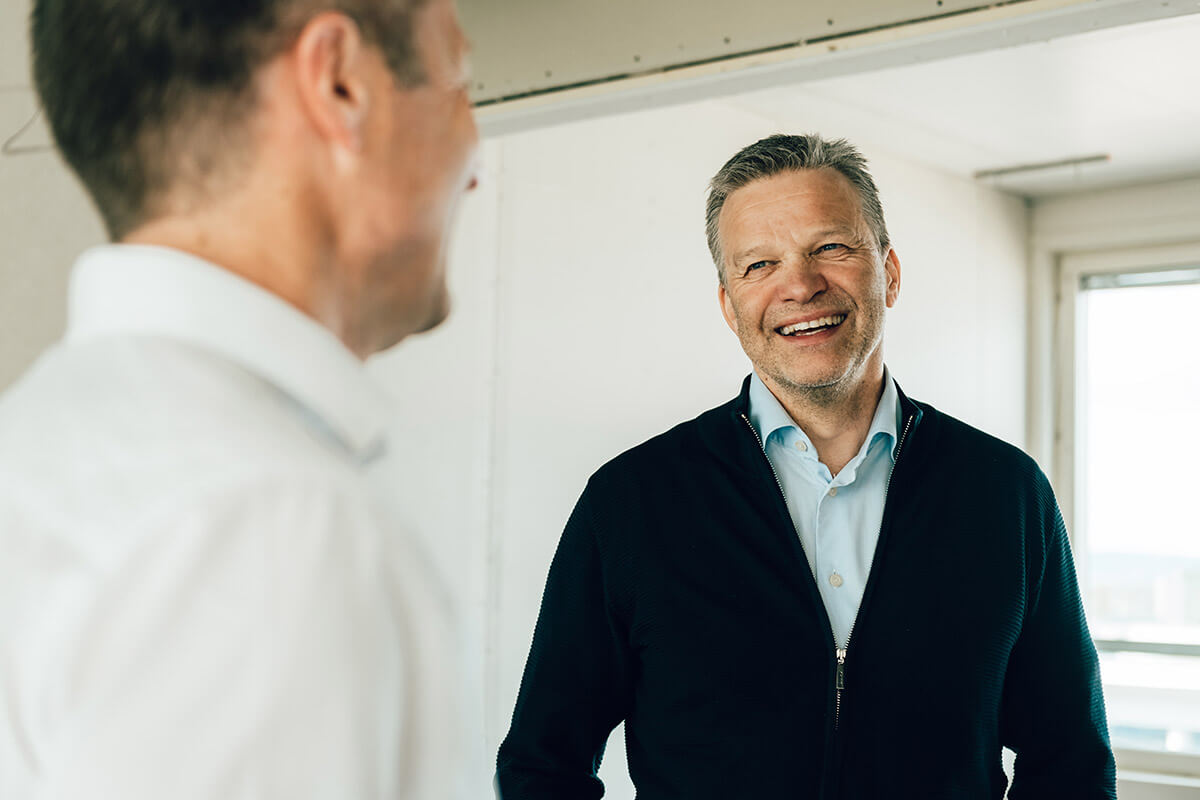ESG: These three little letters might mean nothing to you. Or they might change your whole life for the better, you just don't know it yet.
ESG is a new form of guidelines that every company should aim to fulfill. Something that businesses throw around in order to be seen as a “good” company. Because really – does anyone understand what ESG actually means? The E stands for Environmental. The S stands for Social. The G stands for Governance. All in all, trying to be sustainable in every corner of this triangle.
But what does all of this actually mean in the most concrete ways for everyone who works at Håndverksgruppen?
Social: Our workers are the most valuable resource
Håndverksgruppen aims to change a whole industry for the better in many areas. And CEO Øyvind Emblem wants to start with the most important letter of ESG, the S: The social aspect.
– Many small changes need to be made in the name of ESG. And it needs to start with our employees, our “gold”, the most valuable resource we have. We have to train them, and make sure they arrive at a safe, serious and structured workplace. We need to take care of each other, Øyvind Emblem says.
– Sounds great, but “how”?
– All of our workers need to go through a course of ethics. They will learn how to behave, towards clients, in meetings, at seminars, but also towards each other, Emblem says.
Håndverksgruppen has 3200 employees from many nations and cultures. HG also helps former inmates back to work. So, in this varied group, HG wants to show they are aware of this diversity.
– Because we want to permanently stop any kind of misbehavior at the workplace, says the CEO.
“We want to understand the impact all of our small business choices have on our planet.”

Challenging the status quo
Not long after its establishment, HG challenged its suppliers to increase professionalism and collaboration across the value chain to develop better and more sustainable solutions. This was a new focus in the industry.
– We don't take no for an answer. We all have to take our responsibility for ESG elements within the value chain, Emblem says.
HG also wants all of the suppliers to have equal playing ground.
– We promote fair competition so that all suppliers, even the very small ones, have possibilities to bring new solutions and innovations to the market. Challenging the status quo benefits everyone and increases professionalism, he says.
In order to be seen as serious and professional as can be, all workers with the green HG-logo on their upper arm are given the chance to learn the language in their respective countries. They also learn that harassment and threats of any kind have a no-tolerance policy. And that if they discover or become a victim of any of these socially non-acceptable treatments, they will have anonymous ways of contacting both the nearest leader, region manager og HG´s chairperson. They can also contact a separate, independent organization outside of HG whose task is to handle incoming worries or whistle blowers. Because we need to make it easy for our employees to communicate bad behavior in order to create the best culture possible.
“They will learn how to behave towards clients, in meetings – but also towards each other.”

Governance: Fair salaries and transparent contracts
Within the crafts industry there has historically been a problem with unreported employment. Or so-called “off the books” work. Håndverksgruppen takes its role as the market leader serious and thereby is a role model on this matter.
– Today, in general, the “black economy” is still an issue! Our companies are serious players and have an absolute no tolerance for working without paying taxes outside working hours, Øyvind Emblem says.
– Why so strict?
– If people don’t pay taxes, we as a society dig our own grave. We need to pay for the benefit of everyone, in order to have a fair and well functioning daily life. It also undermines our own business, he says.
– What about fair salaries?
– We are absolutely focused on non-exploitative wages. Both for our own employees, but also for those who are hired-in. They haven’t been treated fairly in our industry, says the CEO.
– Do you have an example?
– For instance, there have been cases where you see 18 men sleeping in the same apartment, on the kitchen floor, with only a little curtain between each mattress, while paying their employer a rent of more than 300 euros per month. So, a contractor could pay their workers an ok salary, as long as they get 50.000 euros back in terms of rent! That is “creative”, no? And that has happened in Norway, a country we like to think is so fair and equal. Imagine how the rest of the world acts. Look at Dubai or India.
– Why do you think this is, the fact that so many craftspeople are being exploited?
– I have wondered the same, it really should be they who got praise and recognition for building and taking care of our monumental buildings and all the houses we all live safely in, Emblem says.
– So how do you at HG do it differently?
– We form transparent, serious contracts for every worker and they all get paid for their overtime, paid extra for travel and all that. We also want permanently employed people, not people on short contracts, says Øyvind Emblem.
Many craftspeople within the industry are not fully skilled, but also don't get proper training and therefore are never able to excel in their work.
– Because then they should have a higher salary, so many are “kept” being “helpers” forever. HG on the other hand wants our trainees to become masters and excel in their careers, and then also pay them better of course. We do however need to have control over their training, and want to be able to document it, that's a part of the reason why we have started the HG Academy.
“There have been cases where you see 18 men sleeping in the same apartment, on the kitchen floor, while paying their employer over 300 euros per month.”
Environmental: We want to do, not just say
Thomas Schwenke, Chief of Sustainability at HG, wants to understand the impact all small business choices have on our planet.
– And we want to act on it, he says.
– The first thing we did was to research very precisely how much leftover paint is produced every day by every painter. We weighed the brushes before and after washing. We did the same with the paper covering the floor when we paint roofs. It showed how much excess paint we wash out, and ultimately ends up in rivers and oceans. That’s how easy HG can do concrete changes in order to save paint, not just for our budgets, but also the planet. Most of all for the planet, says Schwenke.
Another thing HG has done is making sure all the colored water will not be thrown out in the drainage pipes all over the place, but shall be picked up by green companies in order to handle it like the poisonous debrief it is. Paint does contain a lot of micro plastic! So, all the paint in the buckets will also have to properly dry before they are recycled, for no unnecessary paint ending up in nature.
– We also have M-TEK as part of our group whose only job is to figure out exactly where a problem with heating cables has occurred, so we only have to remove a few tiles, not tear up everything like before. And, even though we would get more income by replacing the whole old floor, we would rather do it quicker, cheaper and more environmentally friendly by reusing it, Schwenke says.
– That's great! What else?
– Then we started to collect data for how many kilometers each and every of our 1000 cars all over Norway drive back and forth. Some do eight trips, others just two on a similar project. So we need to arrange for new routines and better communication at those offices where workers drive the most. This will save quite a lot of CO2, says Thomas Schwenke, and adds that HG “of course” will try to swap their fossil cars towards a 100 % electrical car park.
All companies who are and will come together under the wings of HG will have to certify that they are “Miljøfyrtårn” and ISO 14001 certified companies. These certifications are for enterprises seeking to document their environmental efforts.
They will have to go through their climate numbers, their use of electricity, the way they handle their disposables and get official certifications. Right now 50 % of the companies within HG already have this, but more are in the works. HG will not stop until everyone is as green as can be.
– We only see the very beginning of the effects of implementing ESG all over the world, right?
– Exactly, we are all trying our best, and we have just started. We want to be a great, profitable company, but also be very aware of our social, environmental and governmental responsibility.
“When you listen to HG there’s no doubt they mean business. It’s not just something they say, they’re really doing it.”

ESG Award 2022: “No doubt HG means business”
The ESG-efforts at Håndverksgruppen has been noticed. That is why they won The FSN ESG-award 2022.
- It’s quite unique! Although we need to move towards a more sustainable world, many companies still can’t be bothered. They prefer not rocking the boat and wait for others to come up with solutions they can adopt later. Clearly, if everyone thought like that the world would not be moving forward, says Rebecca Svensøy, General Counsel and Head of ESG at FSN Capital who awarded HG with the prize.
– Why did they win?
– HG has awareness of ESG in daily operations. They create value in society at large, they have clarity in policies, as well as focus on continuous improvement and a clear tone from the top, she says.
- This is a key success factor. And when you listen to HG there’s no doubt they mean business. It’s not just something they say, they’re really doing it, says Rebecca Svensøy, and adds:
– Actually, in the end…HG is lifting the entire industry to another level when it comes to focusing on ESG and sustainability. It’s part of the reason why they won.


